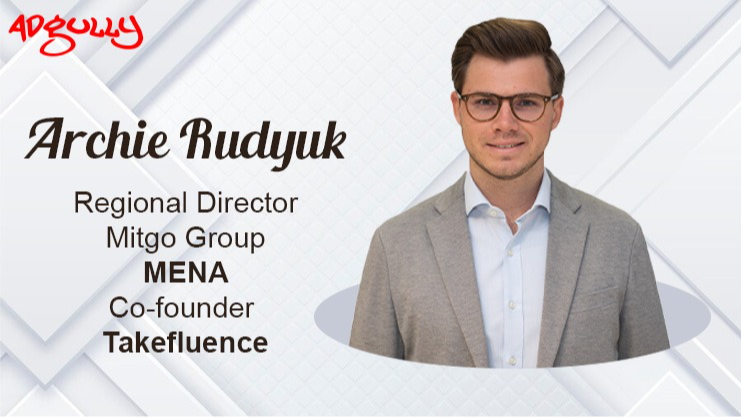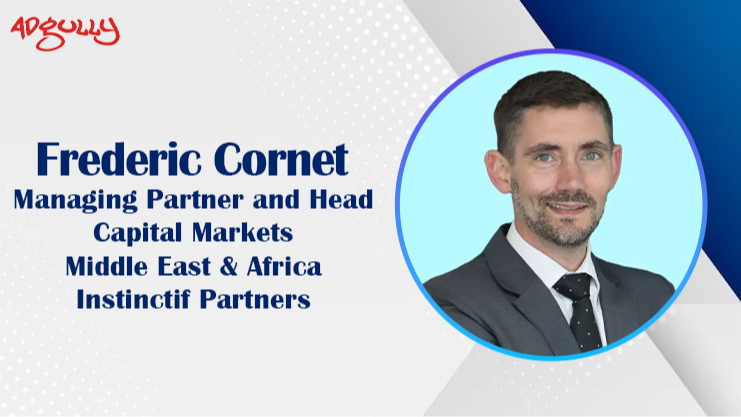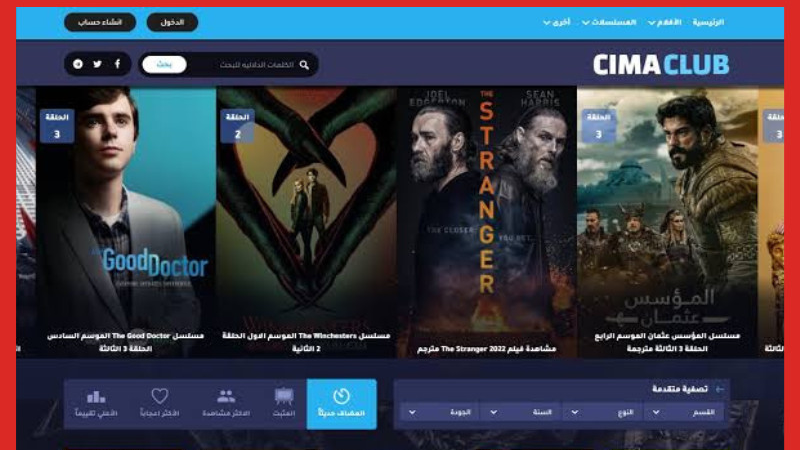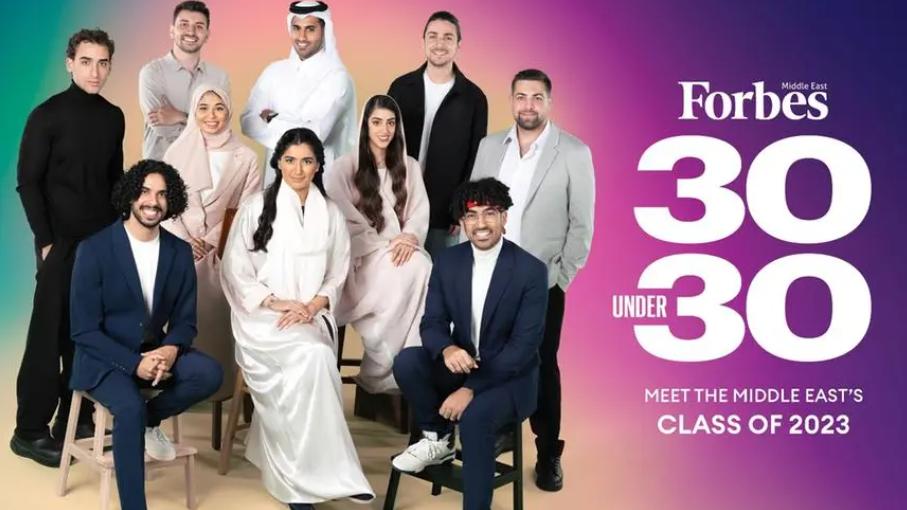
Mitgo Group, a global tech company focused on delivering innovative marketing solutions and promoting entrepreneurship, has recently launched Takefluence, a platform connecting content creators and social media enthusiasts with brands in the Middle East and North Africa (MENA) region.With this launch of Takefluence, Mitgo Group aims to strengthen its position in the MENA influencer marketing industry, which experts estimate at more than $1 billion.In this interview with Adgully Middle East, Archie Rudyuk, Regional Director of Mitgo Group in MENA and Co-founder of Takefluence, discusses the recent launch of Takefluence, aimed at connecting content creators and social media enthusiasts with brands in the MENA region. The platform is designed to facilitate influencer marketing activities in the MENA region, which is estimated to be worth over $1 billion. Rudyuk also highlighted the importance of Takefluence in strengthening Mitgo Group's position in the MENA influencer marketing industry. The platform seeks to tap into the growing market of content creators and social media influencers in the region, providing them with opportunities to collaborate with brands and monetize their online presence.What personal or professional values guide you as the CEO of Takefluence?Working with Takefluence has been an exhilarating journey, fueled by my passion for innovation and dedication to building strong connections between content creators and brands. As CEO, my guiding principles are integrity, creativity, and teamwork. These core values are the heartbeat of our company culture, influencing every decision and strategy, propelling us towards fostering a vibrant ecosystem where both creators and brands can flourish together.Mitgo Group, a global tech company, has announced the launch of Takefluence in the MENA region. How, according to you, will it change the creator economy and social landscape in MENA?The launch of Takefluence in the MENA region marks a significant shift in the creator economy and social landscape. With experts estimating the MENA influencer marketing industry at more than $1 billion, the significance of the content economy in the region is on the rise. This growth is further supported by the announcement of a Dh150 million fund by Sheikh Mohammed bin Rashid, Vice President and Ruler of Dubai.The MENA content economy is expanding rapidly, and with projections indicating a steady rise in creator ad spending, Takefluence's strategic debut aligns perfectly with these trends. We aim to empower creators and forge genuine connections between brands and their audiences, enhancing the region's creator economy.What sets Takefluence apart from other companies in the creator economy space?Takefluence stands out for its innovative approach to collaboration with content creators. Our platform offers unique campaign types based on various actions like conversions, reposting, making a post/story, leaving a product review, and more.Furthermore, it streamlines the entire process for brands — from on-boarding and reporting to payouts offering unparalleled efficiency and effectiveness in social media campaigns. This efficiency, coupled with our collaboration with over 150 brands including Noon, Namshi, and Huawei, positions us to significantly impact the MENA creator economy by enhancing engagement, fostering authentic connections, and boosting brand visibility.How do you envision the future of the creator economy evolving in the MENA, and how is Takefluence adapting to these changes?I see the future of the creator economy in MENA moving towards a more dynamic, collaborative ecosystem that values authenticity and the power of micro and nano influencers. At Takefluence, we're constantly innovating our platform to meet these evolving needs, providing brands and creators with the tools necessary for success. We aim to stay at the forefront of trends and leverage our partnerships to drive impactful engagement and long-term achievements.What can be some of the challenges that you may have to face in MENA, and how will you overcome them?Navigating the MENA market comes with its set of challenges, including cultural nuances, regulatory hurdles, and stiff competition. Our strategy to overcome these obstacles involves building strong local relationships, deeply understanding the cultural landscape, and ensuring regulatory compliance. Innovation and strategic partnerships will also be key in maintaining our competitive edge.Can you discuss a particularly successful campaign orchestrated through Takefluence in the Middle East? What made it successful?One particularly successful campaign orchestrated through Takefluence involved a collaboration between Truegamers and their loyal audience.Truegamers, a leading gaming club in the region, partnered with Takefluence to create an innovative ambassador programme leveraging the influence of their dedicated followers and attracting new participants by rewarding loyalty and invitations. This campaign showcased the power of user-generated content and rewarding audience engagement.Truegamers' ambassador programme encouraged content creators to share an exclusive promo code with their audience, offering 1 hour of free play at Truegamers for every new user sign-up using the code. Additionally, creators earned up to 35 AED for every new gamer joining True Gamers with their exclusive promo code. This incentive-based approach not only attracted new users to Truegamers but also incentivized content creators to actively promote the brand, driving engagement and brand loyalty.True Gamers are going to open 150 new gaming clubs in Saudi Arabia, and we are planning to extend our collaboration there to empower local gaming talent and creators.What advice do you have for brands looking to collaborate with content creators more effectively?Consider leveraging the power of nano and micro creators, whose campaigns have been proven to be up to 4-5 times more effective than those of mega influencers.One effective strategy is to embrace the brand-formance format, which incorporates Cost Per Acquisition (CPA) and hybrid campaigns. This approach offers diverse campaign options tailored to your specific goals and objectives, ensuring optimal performance and ROI.Platforms like Takefluence offer streamlined processes for launching campaigns, automating tasks such as onboarding, reporting, and payouts. By leveraging such platforms, brands can save time and resources while ensuring efficient and effective campaigns.What innovations or developments can we expect to see from Takefluence in the Middle East after partnering with Mitgo?Looking ahead, we're excited to expand our brand partnerships, enhance our platform features, and introduce new initiatives to support creators and brands in the region.We've recently launched our Ambassador programme, offering content creators access to special offers. We are committed to driving innovation and fostering meaningful connections between content creators and brands to reshape social commerce in the MENA region.How does Takefluence stay ahead of emerging trends and changes in social media platforms?We keep our finger on the pulse of the industry by closely monitoring trends, engaging with experts, and leveraging data analytics. Valuing feedback from our community of creators and brands allows us to evolve our platform in line with their needs. This proactive approach ensures we stay agile and continue to lead in the creator economy space.


























 marketing
11-Dec-2023
PepsiCo
SABIC
Mega Green Accelerator
Roland Daher
AstroLabs
Eugene Willemsen
MENA
COP28
GCC
Shurooq Partners
Venture Souq
Dubai Future District Fund
London Business School Entrepreneurship Club
Berytech
American University of Cairo Venture Lab
Sharjah Research Technology
Innovation Park
Mohammed VI Foundation for Environmental Protection
marketing
11-Dec-2023
PepsiCo
SABIC
Mega Green Accelerator
Roland Daher
AstroLabs
Eugene Willemsen
MENA
COP28
GCC
Shurooq Partners
Venture Souq
Dubai Future District Fund
London Business School Entrepreneurship Club
Berytech
American University of Cairo Venture Lab
Sharjah Research Technology
Innovation Park
Mohammed VI Foundation for Environmental Protection




















